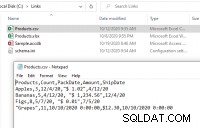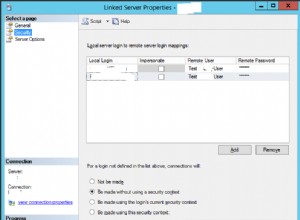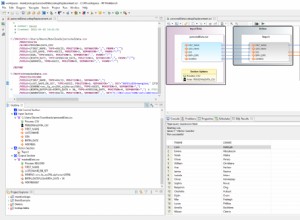En el pasado, resolví un problema como este al crear una tabla temporal que contendrá todas las fechas necesarias:
CREATE TABLE #AllDates (ThisDate datetime null)
SET @CurrentDate = @StartRange
-- insert all dates into temp table
WHILE @CurrentDate <= @EndRange
BEGIN
INSERT INTO #AllDates values(@CurrentDate)
SET @CurrentDate = dateadd(mm, 1, @CurrentDate)
END
Luego, modifique su consulta para unirse a esta tabla:
SELECT ALLItems.ItemId,
SUM(COALESCE(Inventory.Qty, 0)) AS Individual_MonthQty,
MONTH(#AllDates.ThisDate) AS Individual_MonthAsNumber,
DATENAME(MONTH, #AllDates.ThisDate) AS Individual_MonthAsString
FROM #AllDates
JOIN (SELECT DISTINCT dbo.Inventory.ItemId FROM dbo.Inventory) AS ALLItems ON 1 = 1
LEFT JOIN Inventory ON DATEADD(dd, - DAY(Inventory.dadded) +1, Inventory.dadded) = #AllDates.ThisDate AND ALLItems.ItemId = dbo.Inventory.ItemId
WHERE
#AllDates.ThisDate >= @StartRange
AND #AllDates.ThisDate <= @EndRange
GROUP BY ALLItems.ItemId,
#AllDates.ThisDate
Entonces debería tener un registro para cada mes, independientemente de si existe en el Inventario.




